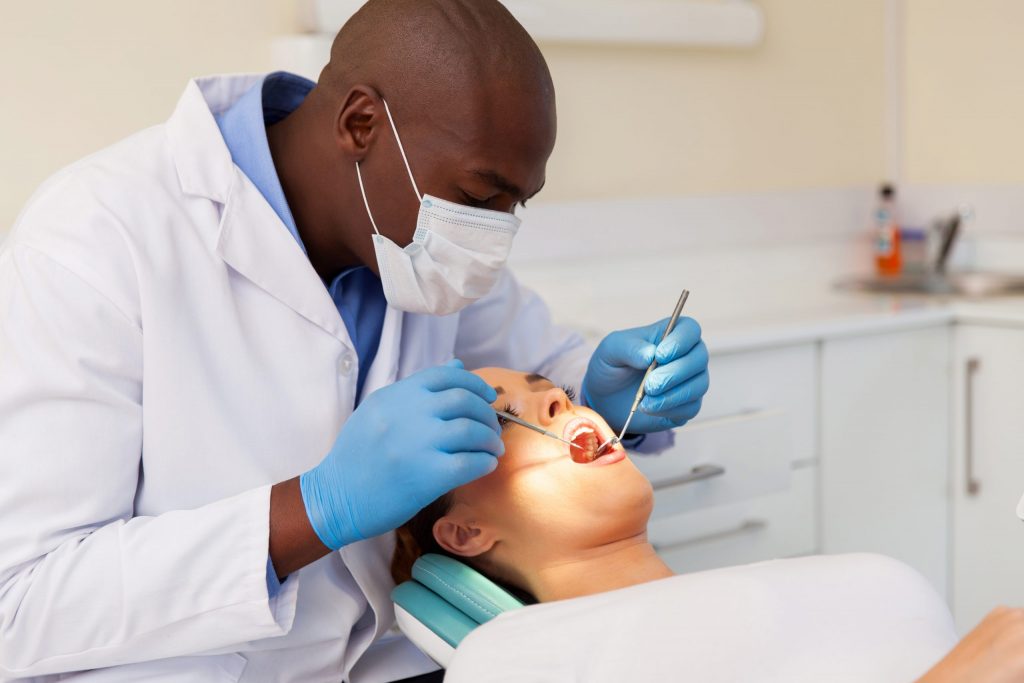Find the very best Dentist in Eugene Oregon for Your Household's Dental Needs
Find the very best Dentist in Eugene Oregon for Your Household's Dental Needs
Blog Article
Discover Frequent Dental Concerns Your Dental Expert Can Fix
Comprehending regular dental issues is essential for preserving optimal oral health. Issues such as tooth cavities, gum condition, tooth level of sensitivity, negative breath, and dental cavity prevail yet usually forgotten up until they come to be severe. Dental experts have the know-how to identify and treat these problems, thereby preventing further difficulties. Normal oral gos to and customized treatment plans can resolve these issues efficiently, ensuring a much healthier and brighter smile. However what specific therapies do dental professionals employ to deal with these problems, and just how can early intervention make a distinction? The responses to these questions use useful insights right into protecting your oral health and wellness.
Dental Caries
Tooth cavities, also referred to as cavities, are a prevalent oral health concern brought on by the demineralization of tooth enamel due to acid production from microbial plaque. This process starts when microorganisms in the mouth metabolize sugars and starches from food, producing acids that erode the enamel. Otherwise resolved promptly, this disintegration can permeate much deeper into the tooth, impacting the dentin and ultimately the pulp, potentially bring about extreme pain and infection.
The beginning of tooth cavity formation typically present as white spots on the tooth surface, showing first demineralization. As the process advances, these spots can establish right into brown or black sores, signifying a lot more extensive decay. Normal oral examinations are critical for early detection, as dental caries in their incipient phases can be treated with remineralization techniques, such as fluoride therapies.
Dental experts normally remove the corroded section of the tooth and fill the cavity with materials such as composite material, amalgam, or ceramic. Preventative steps, consisting of great dental health methods and dietary modifications, play a pivotal role in reducing the threat of tooth cavities.
Periodontal Condition
While cavities represent a considerable issue for dental health and wellness, one more critical problem that demands interest is gum disease. Additionally referred to as periodontal illness, periodontal disease is an inflammatory condition affecting the tissues surrounding and supporting the teeth. It is primarily triggered by the buildup of plaque-- a sticky film of microorganisms that bases on teeth.
Gum tissue disease proceeds with phases, beginning with gingivitis, identified by soreness, swelling, and bleeding gums (dentist eugene oregon). If left neglected, gingivitis can rise to periodontitis, where the internal layer of the gum tissue and bone retreat from the teeth, forming pockets that become infected. In time, the toxins generated by the microorganisms break down the bone and connective cells that hold teeth in location, potentially resulting in missing teeth
Early discovery and treatment are essential. Professional dental cleanings and improved dental health techniques, such as brushing twice day-to-day and flossing, can take care of gingivitis. For more innovative stages, therapies may consist of scaling and origin planing, prescription antibiotics, and even surgical interventions.
Routine oral check-ups play an essential function in taking care of and avoiding gum condition. Dental professionals can determine very early indicators and suggest ideal treatments, ensuring the maintenance of healthy and balanced gum tissues and overall dental wellness.
Tooth Level Of Sensitivity
Tooth sensitivity impacts millions of individuals worldwide, offering a common yet commonly distressing dental problem. This problem develops when the enamel, the outer safety layer of the teeth, is compromised, revealing the underlying dentin.
A number of aspects add to enamel erosion and subsequent tooth sensitivity, including hostile cleaning, acidic foods and drinks, gum economic crisis, and bruxism (teeth grinding) In addition, oral procedures such as teeth bleaching can temporarily increase sensitivity.
Poor Breath
Another widespread oral worry that impacts individuals' every day lives is poor breath, medically termed halitosis. This problem can be specifically stressful, influencing individual communications and self-worth. Halitosis often stems from inadequate oral hygiene, which permits food fragments to continue to be in the mouth, promoting microbial growth. These microorganisms generate sulfur substances, resulting in unpleasant odors.

Dental professionals play a critical duty in identifying and treating bad breath. They can identify the origin via a detailed assessment and provide customized suggestions and treatment plans. Suggestions may include enhancing oral hygiene techniques, such as routine cleaning and my site flossing, using antibacterial mouthwashes, staying hydrated, and resolving any type of dental concerns. In many cases, a referral to an expert might be essential to tackle underlying illness contributing to foul breath. Effective monitoring of halitosis not only enhances dental health however likewise substantially boosts high quality of life.
Dental Caries

Stopping tooth degeneration involves a combination of excellent oral health methods and regular oral examinations. Brushing teeth a minimum of twice daily with fluoride toothpaste, flossing to eliminate plaque in between teeth, and limiting the consumption of sugary foods and drinks are essential preventive actions. Fluoride treatments, dental sealants, and professional cleanings given by a dental professional can likewise play a considerable function in fortifying enamel and protecting against degeneration.
When dental caries happens, early intervention is essential. Dentists can get rid of corroded tissue and bring back the tooth with fillings made from materials such as composite resin, amalgam, or porcelain. In advanced situations, treatments like crowns, root canals, or removals may be necessary. By addressing dental cavity without delay, dental practitioners aid protect dental framework and feature, guaranteeing long-term dental wellness.
Verdict
Dealing with usual dental concerns such as dental caries, gum visit the website condition, tooth sensitivity, halitosis, and dental caries is important for maintaining ideal oral health and wellness and overall health. Dental experts possess the expertise to identify and deal with these problems properly, guaranteeing customized take care of each client. Normal preventative steps and oral check-ups are vital in recognizing and handling these issues early, promoting a much healthier and more positive smile over a life time.

Tooth decay, additionally understood as dental decays, happens when the enamel, the outermost layer of the tooth, is deteriorated by acids created by bacteria in the mouth. Cleaning teeth at least twice daily with fluoride why not find out more tooth paste, flossing to eliminate plaque in between teeth, and limiting the intake of sweet foods and beverages are essential precautionary steps.Addressing typical dental worries such as cavities, gum tissue illness, tooth level of sensitivity, poor breath, and tooth degeneration is important for maintaining ideal oral health and wellness and overall wellness.
Report this page